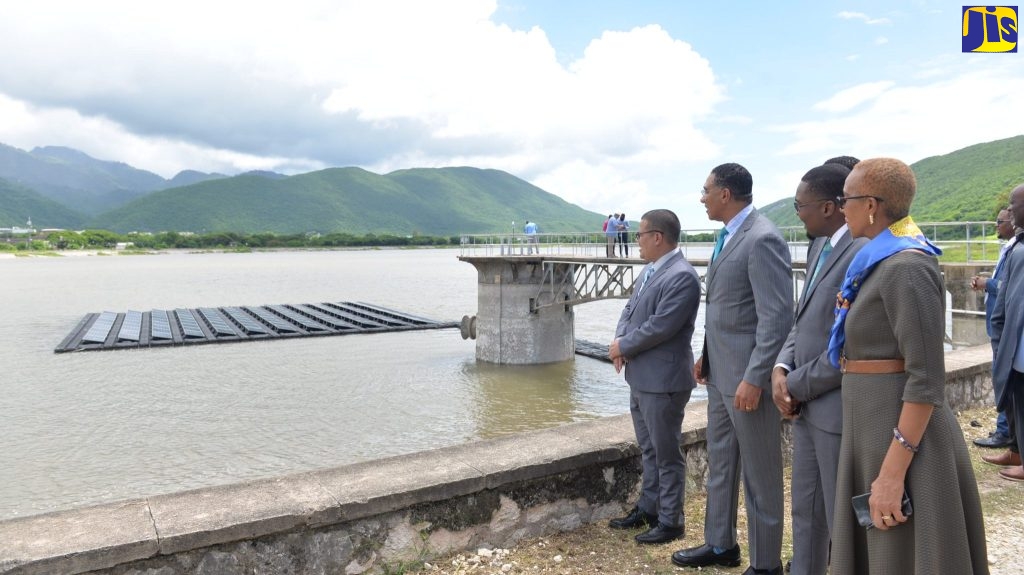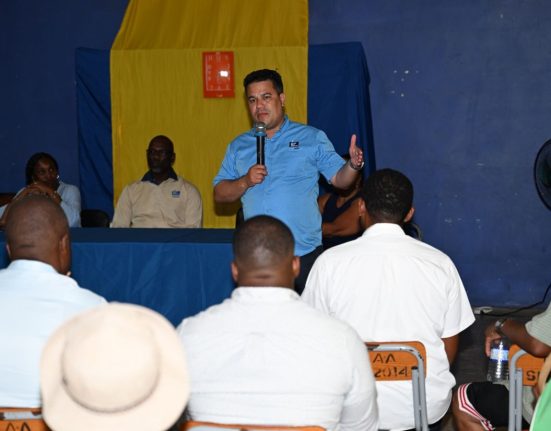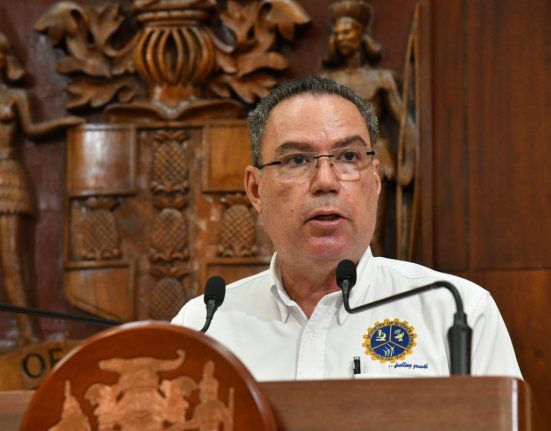
A floating solar project has been launched at the Mona Reservoir in St. Andrew, which is expected to save the National Water Commission (NWC) some US$120,000 annually in energy costs.
It will allow for the placement of 45 megawatts of floating solar photovoltaic panels on the surface of the reservoir to, among other things, generate clean, renewable energy for the site.
The project will be carried out by Derillion Energy Limited at a cost of US$62,500,000.
Prime Minister, the Most Hon. Andrew Holness, in his address at the launch Wednesday (September 28), said that the initiative is in keeping with the Government’s mandate to reduce the fiscal risks of the NWC.
“One of the largest costs to the NWC is its energy cost… . The savings [from this project] will be significant, and it will strengthen the NWC,” Holness said.
He pointed out that the expected benefits include a reduction in the evaporation of the water, since the solar panels are deployed on the surface, covering the water.
He outlined that most of the energy generated from the project, in the first phase, will be used in the treatment and pumping of the water.
“We will have some storage capacity, meaning that when the sun goes down, we will still be able to benefit from the solar energy that is created,” Holness said.
“What you’re seeing today is another strategic and synergetic nation-building decision that generations to come will benefit from,” he added.
In his remarks, Minister without Portfolio in the Ministry of Economic Growth and Job Creation, Senator Matthew Samuda, underscored that energy is one of the major elements in the ability of the NWC to supply Jamaicans with potable water.
He noted, that for the Government to transform the NWC, it must change how the entity consumes energy.
“Years of research and technological advances have shown that solar water pumping is a viable way to save on energy costs. Not only is it environmentally sustainable but has also proven to be operationally and financially beneficial,” he added.
In June, a 50-kilowatt floating solar photovoltaic power plant was commissioned at the Mona Reservoir as a pilot project.
Samuda reported that the system is already bearing fruit, with the NWC noting a 28 per cent reduction in its JPS consumption for the month of June and a 30 per cent reduction in July, when compared to May.
Overall, he said, the savings from the project will bolster the ability of the NWC to manage its payments, implement projects and get more Jamaicans connected to potable water.
Education and Youth Minister and Member of Parliament for St. Andrew Eastern, in which the Mona Reservoir is located, Fayval Williams, hailed the project as “a step into the renewable energy age”.
“[Its] environmental benefits are enormous and it will be a legacy for future generations,” Williams said.
For his part, Minister of Science, Energy and Technology, Hon. Daryl Vaz, noted that the project is directly in tandem with the Jamaica National Energy Policy 2030, which stipulates that government ministries and agencies serve as models and leaders in energy conservation and environmental stewardship.
The Mona Reservoir Floating Solar Project is expected to be rolled out in phases, before its 2024 completion.
The first phase of the undertaking will be the completion of NWC’s requirements for 10 megawatts of solar and five-megawatt hours of energy storage by the third quarter of 2023.
The remaining 35 megawatts of solar and 20 megawatt hours of grid storage will follow immediately.




